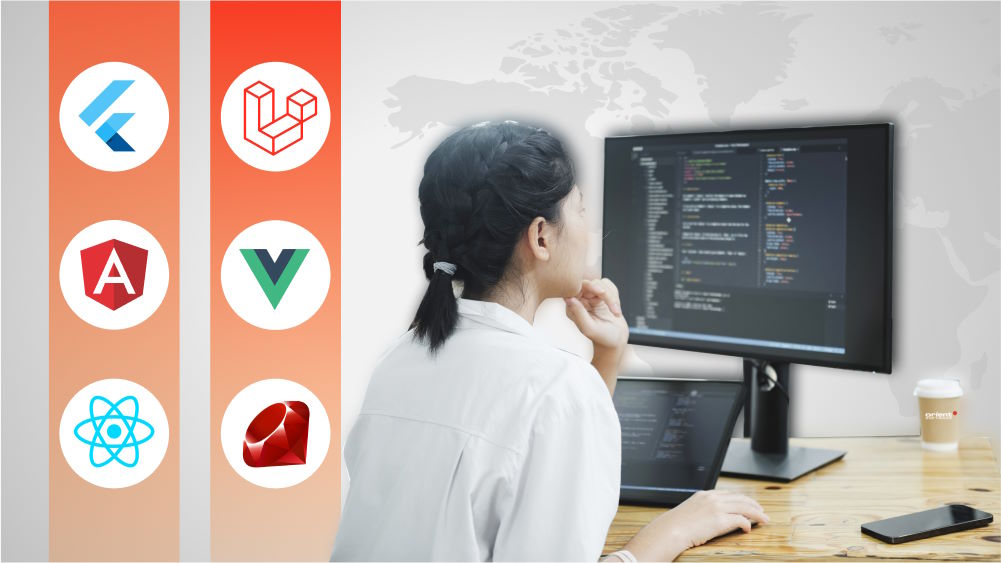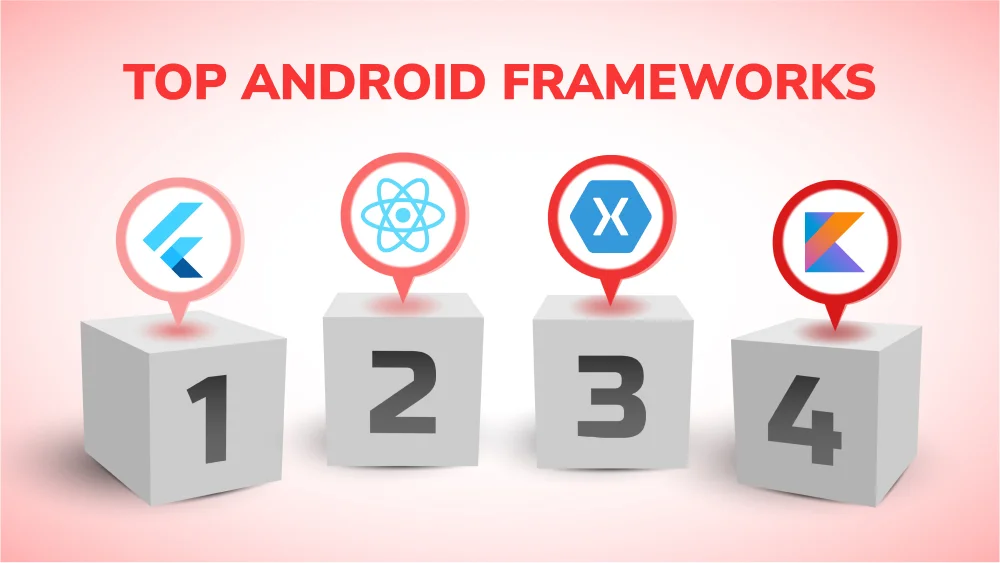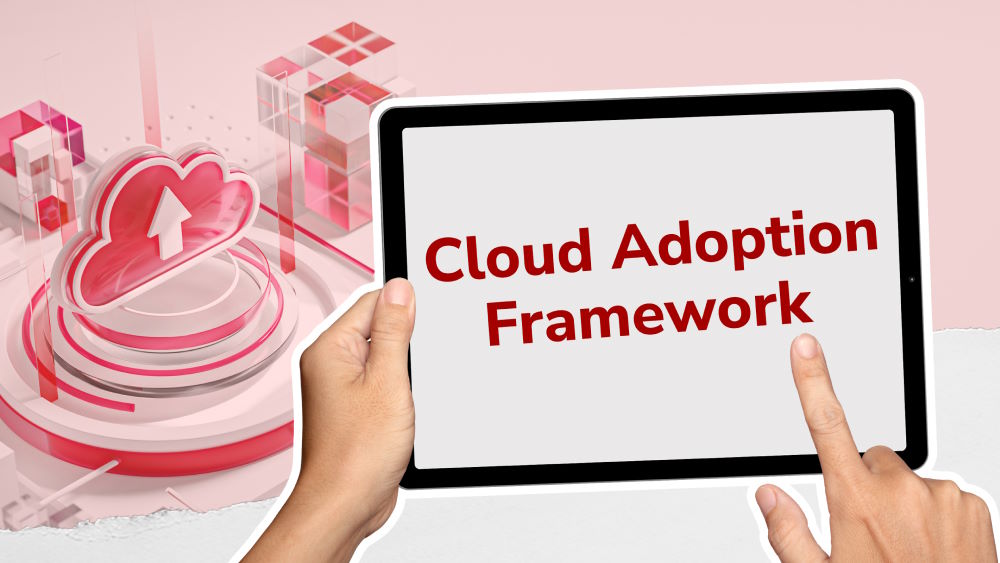
A Quick Guide to Choosing the Best Android Frameworks

Content Map
More chaptersWith over 2.5 million mobile apps and counting, the Google Play Store attests to Android’s monumental rise as a mobile force. As the most used smartphone operating system since 2010, Android held over 70% of the smartphone operating system market in 2022. Naturally, developer interest has followed suit - but the vast array of Android frameworks can seem overwhelming at first.
With the rise of the cross-platform framework, developers worldwide have been able to generate apps that are accessible through a large number of various end devices. In fact, a 2022 developer survey revealed that roughly one third of mobile developers use cross-platform technologies or frameworks.
Should you go with classic Android Studio? What makes Kotlin better than Java nowadays? When does Flutter make sense over native development? And where does React Native fit in? With so many options for building Android apps, it’s easy to spin your wheels wondering which approach is best.
Fear not - this guide aims to simplify your framework choice once and for all. We’ll break down the strengths, limitations and common uses of leading Android app development frameworks. No jargon, just practical insights to align your needs with the right framework.
Understanding Android Development Frameworks
An Android framework is a set of pre-written code tools and libraries that provide a foundation for building Android applications. Imagine it as a pre-built skeleton for your app, complete with essential functionalities like UI components, data access methods, and core functionalities. Developers leverage these frameworks to streamline the development process, focusing on the unique features and functionalities of their specific app rather than reinventing the wheel for basic functionalities. This reusability of code saves time and effort, allowing developers to bring their project ideas to life faster. Frameworks also promote consistency in app design and performance, ensuring a smooth user experience across different Android devices.
When choosing frameworks for Android app development, one of the key decisions is whether to go for native Android development or opt for cross-platform approaches.
Native Frameworks
These frameworks, like the core Android framework itself, are designed specifically for developing apps for a particular platform (in this case, Android). They utilize the platform’s native programming languages (Java or Kotlin for Android) and offer the best possible performance and access to all the platform’s features. Native apps typically provide the most responsive and visually appealing user experience. However, the downside is that developing a native app requires separate codebases for different platforms (e.g., Android and iOS) if you want your app to be available on both. This can be time-consuming and resource-intensive.
- Pros: Maximum performance, full access to native features
- Cons: Platform-specific development requires more development effort
Cross-Platform Frameworks
These frameworks allow software developers to write code once and deploy it on multiple platforms like Android and iOS. Popular examples include Flutter, React Native, and Xamarin. They typically use web technologies like JavaScript or C# to build the core app logic, then bridge them to the native platform functionalities using platform-specific tools. Cross-platform development offers faster development cycles and easier maintenance, but there can be trade-offs. Cross-platform apps might have slightly slower performance or limitations in accessing certain native device features.
- Pros: Faster development for multi-platform apps, code reusability
- Cons: Potential performance limitations, may not have full access to the native feature
If performance and access to all of Android’s features are your top priority, native Android development may be the way to go. If you want to develop multiple platforms quickly and cost-effectively, hybrid app development or cross-platform development may be a better choice.
Top Android Frameworks

Now that you understand the advantages of using frameworks and the two main approaches (native and cross-platform) let’s dive into the world of popular Android frameworks.
Flutter
Flutter is a cross-platform, open-source framework developed by Google for building high-performance, visually attractive, and natively compiled applications for web, mobile, and desktop platforms. Key features include a reactive, widget-based UI model, a rich set of pre-built widgets, and support for both iOS and Android platforms using a single codebase.
Flutter offers a smooth, native-like development experience with its Dart programming language and robust tooling support, including the powerful Flutter SDK and the Android Studio/Visual Studio Code IDEs. While Flutter apps may not achieve the absolute peak performance of native apps, they provide an excellent balance of development efficiency and user experience, making them well-suited for a wide range of app types, from consumer-facing applications to enterprise-grade solutions.
React Native
React Native is a cross-platform framework developed by Facebook for building native-looking mobile applications using the popular JavaScript library React. It allows developers to create platform-specific components that seamlessly integrate with the underlying native platforms, providing a high-performance, native-like user experience.
React Native leverages JavaScript and the React development model, which can simplify the learning curve for developers familiar with these technologies. While the framework has strong community support and a vast ecosystem of third-party libraries, it may require more effort to achieve complete parity with native apps in terms of platform-specific features and performance.
Xamarin
Xamarin is a cross-platform framework owned by Microsoft, enabling developers to create native Android, iOS, and Windows applications using a single C# codebase. Xamarin provides access to native platform APIs and UI controls, allowing developers to build visually appealing and highly performant apps.
The framework benefits from Microsoft’s extensive tooling support, including Visual Studio and Xamarin Studio, which simplifies the development and debugging process. Xamarin is well-suited for enterprise-level applications, especially those that require tight integration with Microsoft’s ecosystem or legacy .NET libraries.
Kotlin Multiplatform Mobile (KMM)
Kotlin Multi-platform Mobile (KMM) is a relatively newer framework developed by JetBrains, the creators of the Kotlin programming language. KMM allows developers to share code across multiple platforms, including Android, iOS, and the web, using Kotlin as the primary language.
The framework provides a native-first approach, enabling developers to maximize the full capabilities of the underlying platforms while still benefiting from code reuse. KMM is well-suited for projects that require high performance, platform-specific features, and a consistent codebase across multiple platforms, making it a compelling choice for complex enterprise applications or cross-platform mobile games.
These are just a few of the top Android frameworks available, each with its own strengths, weaknesses, and use cases. The choice of frameworks depends on the specific project requirements, the development team’s expertise, and the desired balance between development efficiency, performance, and platform-specific integration.
Choosing the Right Framework for Android App Development
Selecting the best Android frameworks hinges on several key considerations; it’s important to carefully evaluate the key features and characteristics of the available options. Here’s a comparison of the top Android frameworks - Flutter, React Native, Xamarin, and Kotlin Multi-platform Mobile (KMM) - to help you make an informed decision:
Project Type
Flutter is well-suited for a wide range of app types, from consumer-facing applications to enterprise-level solutions. Its cross-platform capabilities make it a more popular choice for projects that need to target both Android and iOS platforms.
React Native is a versatile framework that can be used for a variety of app types, including consumer apps, enterprise applications, and even complex, performance-critical projects.
Xamarin is particularly well-suited for enterprise-level applications, especially those that require tight integration with the Microsoft ecosystem or legacy .NET libraries.
KMM is a great choice for complex, performance-critical applications that need to target multiple platforms, including Android, iOS, and even the web. Its native-first approach makes it well-suited for projects that require platform-specific features and high performance.
Performance
Flutter apps generally provide a smooth, native-like feel and rendering speed, thanks to the framework’s optimized rendering engine and reactive programming model. Flutter’s performance is considered excellent, though it may not quite reach the absolute peak of native Android apps in some cases.
React Native apps achieve a native-like user experience by leveraging the underlying platform’s native components. While the performance is generally very good, it may not match the absolute peak performance of native Android apps, especially for complex or graphics-intensive applications.
Xamarin apps are designed to provide a native-level user experience, with tight integration to the underlying platform APIs and UI controls. The performance of Xamarin apps is on par with native Android apps, making it a suitable choice for performance-critical projects.
KMM’s native-first approach allows developers to maximize the full capabilities of the underlying platforms, leading to high-performance applications that can match or even exceed the performance of native Android apps. The framework’s ability to share code across platforms without compromising performance makes it a compelling choice for performance-critical projects.
Tooling Support
Flutter benefits from Google’s strong support, with the Flutter SDK and integration with popular IDEs like Android Studio and Visual Studio Code. The tooling experience is generally considered excellent, with features like hot reload and a rich set of debugging and testing tools.
React Native enjoys a large and active community, with support from Facebook and a wide range of third-party libraries and tools. The development experience is enhanced by integration with popular IDEs like Visual Studio Code and Android Studio.
Xamarin is backed by Microsoft, providing a seamless integration with Visual Studio and the .NET ecosystem. The tooling experience is highly polished and includes features like WYSIWYG UI design, debugging, and continuous integration support.
KMM is relatively newer, but it benefits from JetBrains’ strong support and integration with IntelliJ IDEA and Android Studio. The tooling experience is continuously improving, with features like cross-platform build and debugging support.
Prioritizing Factors for Building Your Own Android Apps
When it comes to choosing the best Android framework for your app development project, there is no one-size-fits-all solution. Each of the frameworks discussed - Flutter, React Native, Xamarin, and KMM - has its own strengths and weaknesses, making the selection process a crucial decision that can significantly influence the success of your app. The importance of each factor will vary depending on your specific project. Here are some tips for prioritizing:
- For simple apps with a tight deadline, prioritize the development speed offered by cross-platform frameworks.
- For complex apps requiring peak performance, prioritize native frameworks.
- If code reusability across platforms is crucial, prioritize cross-platform frameworks like KMM or Xamarin.
- If your team has existing expertise in a particular language or framework, leverage that knowledge for faster development.
As you embark on your Android app development journey, consider partnering with experts who can provide guidance and support. Orient Software is a leader in Android app development and has extensive experience in wisely selecting and working with various frameworks. Our team can help you navigate the complexities of framework selection and ensure that your project is set up for success from the start.
Selecting an appropriate framework is simply the initial stage. With Orient Software by your side, you can confidently take this step and many more on your path to creating a successful Android app. Contact us today to learn more about how we can assist you in your Android app development journey.






